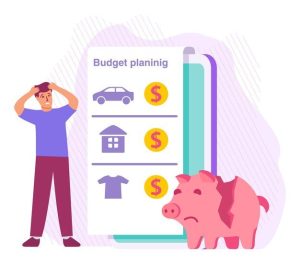Financial planning is an essential skill that everyone should master, especially beginners looking to achieve financial stability. Establishing a weekly routine can make managing your finances much more manageable and less stressful.
By breaking down your financial tasks into smaller, more manageable steps every week, you can stay on top of your money and make informed decisions. Let’s explore how to create a simple yet effective routine that will set you up for long-term success.
Understanding the basics of financial planning

When embarking on your financial journey, it’s crucial to understand the fundamentals of managing your money. Financial planning involves setting goals for your finances, tracking your spending, and making decisions that support your financial objectives. Gaining a firm grasp on these basics can help you lay a solid foundation for your financial future.
Start by examining your current financial situation. Review your income, expenses, and any existing debts. By understanding where you stand financially, you can identify areas that need improvement. This groundwork is essential for setting realistic and achievable financial goals. Remember, the aim is to develop a plan that aligns with your lifestyle and aspirations.
Setting attainable financial goals
Goal-setting is a vital part of any financial strategy. Begin by defining clear, realistic objectives that you want to achieve. These could include saving for an emergency fund, paying off credit card debt, or planning for a vacation. Having specific goals provides direction and motivation, making it easier to make financial decisions aligned with your priorities.
Once you’ve set your goals, break them down into smaller, actionable steps. This approach makes challenging objectives more achievable and provides a sense of accomplishment as you work towards them. Regularly reviewing your goals and progress will ensure that you stay on track and make any necessary adjustments along the way.
Crafting a personalized financial routine
Your financial routine should be tailored to suit your personal preferences and lifestyle. A successful plan integrates regular habits that foster financial well-being. You don’t need a complicated system; simplicity and consistency are more critical. Find a rhythm that works for you and stick to it.
Begin by dedicating a specific time each week to focus on your finances. This could involve reviewing bank statements, updating your budget, and tracking expenses. Making this a regular part of your week helps you stay informed about your financial health, catch mistakes early, and adjust your spending or saving habits as necessary.
Implementing your routine effectively
For your financial routine to be impactful, commitment is essential. Keep your routine simple and manageable to prevent feeling overwhelmed. Use tools such as budgeting apps, expense trackers, or spreadsheets to make the process straightforward and efficient.
Remember to celebrate your financial milestones, no matter how small. Acknowledging your achievements can motivate you to stick to your routine. Additionally, regularly reviewing your overall financial strategy can provide insights and prompt necessary changes. Learning and adapting is an ongoing process, so remain flexible and open to new tactics as needed.
Reaping the benefits of financial planning
Establishing an effective financial routine as a beginner can seem daunting, but the advantages far outweigh the initial effort. A good financial plan helps you stay organized, spend wisely, and work towards your goals systematically. By dedicating time each week to focusing on your financial health, you lay the groundwork for a stable and secure future.
Financial planning is not a one-size-fits-all approach. Each person’s needs and goals are unique, so take the time to craft a routine that fits your life. As you become more comfortable with your financial system, your confidence will grow, leading to better financial decisions and outcomes. The journey to financial success starts with a single step, so begin today and invest in your future.



